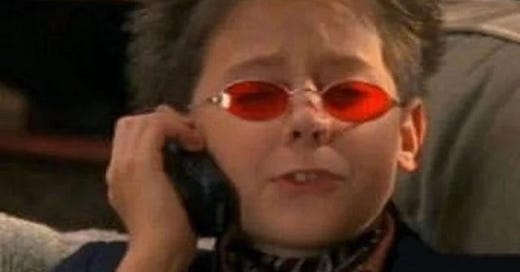The following is a real question I received from a reader. Send me your wacky, weird, philosophical questions about climate or the environment by replying to this email or commenting down below.
Almost seven years ago, I sold my gas-powered car to focus on transportation options with less carbon emissions. I have found car-free life in Boston, MA, to be quite liberating, yet few of my friends have joined me in making this change. Some have even intensified their car use over time. I consider my social circle to be among those most able to choose low-carbon modes— shouldn't we be the ones creating demand for more sustainable options?
—Car-Free & Questioning
Dear Car-Free & Questioning,
When you describe car-free life as “liberating,” are you including the emotional turmoil of balancing groceries on bike handlebars? The character-building experience of a $70 surge-priced Uber during weekend brunch rush?
Have you been personally victimized by major delays on public transportation?
The only thing liberating about being car-free in any city is never having to circle a crowded street like a vulture hunting for parking. You willingly gave up your car, and honestly, that takes some serious commitment to your values.
Here's the thing: I think you made the right choice for you. You took stock of your lifestyle, your priorities, and found a way to align your transportation with your concern for the climate.
When you say that your “circle [is] among those most able to choose low-carbon modes,” I assume you mean your friends are educated, vote religiously, and have some kind of niche hobby like slacklining.
While it might seem logical that your friends should embrace public transit, the decision to own a car is what researchers diplomatically call "complex."
Income used to be the biggest predictor—more money, more likely to own a car. But a study from The Journal of Transport and Land Use found that major life events were just as important: new relationships, college graduation, moving neighborhoods, and having kids. These moments make people reassess their mobility needs.
When you say some friends have "intensified their car use," I'm curious what else was happening in their lives. Maybe they're driving a hybrid now, or they've gone vegetarian, or they're supporting that local CSA—lifestyle changes that, in their minds, balance out car ownership.
What I do know is this: Individual choices matter, but so does the system we're all navigating. As long as public transit is inconvenient, unreliable, or expensive, we'll keep seeing people choose cars in places that don't invest in better alternatives.
I don’t own a car myself, but I spend a lot of time behind the wheel of my partner’s 2000 Lexus RX. He inherited it from his dad, and with over 144,000 miles on it, I've come to realize that I might soon face this very question. Do I really need a car, and what kind of car can I feel good about driving?
So yes, your friends could probably figure out a way to drive less and potentially give up their cars. But they probably won't anytime soon—and not because they're terrible people, but because our modern lives require a million choices and sacrifices to arrive at some semblance of comfort.
In the meantime, be curious about your friends’ choices and engage them in a conversation. And if that doesn’t work, bribe them with a year-long bike-share subscription as a gift, and say phrases like “decarbonize your commute” near their phones, so they’ll get targeted ads for public transit.
Sometimes the algorithm succeeds where friendship fails.
Alternatives to conventional car ownership:
Figure out how to share a car with your friends or family
Consider a membership for a carshare service like Zipcar
If a gas-powered car isn’t your jam, buy an electric one, and take advantage of the federal EV tax credit before it expires
Wait for a bored billionaire to bring teleportation to market
Readers: To car or not to car?




"As long as public transit is inconvenient, unreliable, or expensive, we'll keep seeing people choose cars in places that don't invest in better alternatives." Say it again and again!